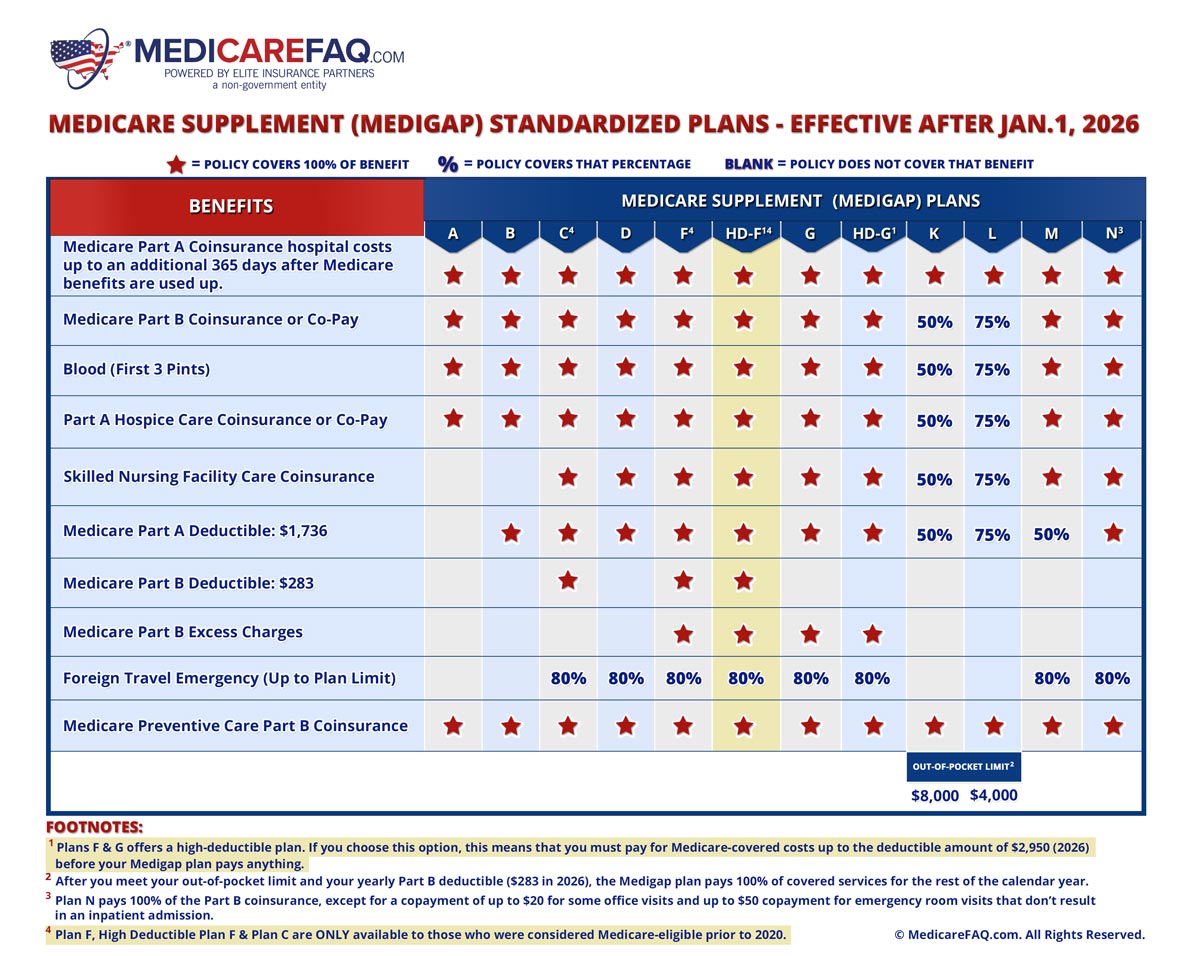Navigating Medicare: Understanding Supplemental Plan F Coverage
Are you feeling overwhelmed by the complexities of Medicare? You're not alone. Millions of Americans face the daunting task of deciphering the alphabet soup of Medicare plans. One particular plan, Medicare Supplement Plan F, often generates significant interest, but also considerable confusion. This comprehensive guide aims to demystify Plan F, offering a clear, concise explanation of its coverage, benefits, and considerations for enrollment.
Medicare Supplement Insurance, also known as Medigap, helps fill the "gaps" in Original Medicare coverage (Parts A and B). These plans, offered by private insurance companies, pay some or all of the out-of-pocket expenses Original Medicare doesn't cover, such as copayments, coinsurance, and deductibles. Among the various Medigap options, Plan F historically stood out for its comprehensive coverage.
Plan F offered the most extensive coverage of any Medigap plan, picking up virtually all out-of-pocket costs. This made it a popular choice for those seeking predictable healthcare expenses and peace of mind. However, changes to Medicare laws in 2020 impacted the availability of Plan F for newly eligible beneficiaries. Understanding the implications of these changes is crucial for making informed decisions about your Medicare coverage.
While Plan F is no longer available to those new to Medicare after January 1, 2020, individuals who were already enrolled before this date can continue their coverage. For those eligible, Plan F remains a powerful tool for managing healthcare costs. This guide will delve into the details of Plan F coverage, exploring its benefits, limitations, and alternatives.
Navigating the Medicare landscape can be challenging, but understanding your options is empowering. Let's explore Plan F coverage in detail, starting with its history and evolution.
Medigap plans have been around for decades, evolving alongside Medicare itself. Plan F has historically been one of the most popular choices. The changes in 2020 aimed to address rising healthcare costs and encourage beneficiaries to be more cost-conscious. This resulted in the phasing out of plans that covered the Part B deductible, including Plan F, for new Medicare beneficiaries.
The importance of supplemental Plan F coverage, for those who are eligible, lies in its comprehensive protection against out-of-pocket expenses. This can significantly reduce financial burdens related to medical care.
One of the main issues related to supplemental plan F coverage is its higher premium compared to other Medigap options. While offering comprehensive coverage, this higher cost may not be suitable for all budgets.
For eligible individuals, Plan F covers the Medicare Part A deductible, Part B deductible, Part A coinsurance and hospital costs, Part B coinsurance or copayment, Blood (first 3 pints), Part A hospice care coinsurance or copayment, Skilled nursing facility care coinsurance, and foreign travel emergency (up to plan limits).
Benefits of Plan F include predictable healthcare costs, comprehensive coverage, and doctor choice.
If you became eligible for Medicare before January 1, 2020, and are considering Plan F, compare plans from different insurance companies, considering premiums, customer service, and financial stability.
Advantages and Disadvantages of Supplemental Plan F
| Advantages | Disadvantages |
|---|---|
| Comprehensive coverage | Higher premiums |
| Predictable out-of-pocket expenses | Not available to new Medicare beneficiaries |
Best Practices: Compare plans, understand coverage, consider your budget, review annually, consult with an expert.
Challenges and Solutions: High premiums - explore other plans; Coverage changes - stay informed; Plan availability - consider alternatives.
FAQ: What is Plan F? Who is eligible? What does it cover? How much does it cost? What are the alternatives? When can I enroll? How do I compare plans? What are the limitations?
Tips and tricks: Review your plan annually, compare quotes from different insurers, understand your healthcare needs.
In conclusion, supplemental Plan F coverage provides significant financial protection for those eligible. It offers peace of mind knowing that out-of-pocket expenses are largely covered. While no longer available to new Medicare beneficiaries, those enrolled before 2020 can benefit from its comprehensive coverage. By carefully evaluating your needs, budget, and available options, you can make informed decisions to secure your healthcare future. It's crucial to compare plans, seek expert advice if needed, and stay informed about changes in Medicare regulations to ensure you have the right coverage for your individual circumstances. Don't hesitate to reach out to your local Medicare office or a trusted insurance advisor to discuss your specific needs and explore the best path forward. Your health and financial well-being depend on making informed choices, so take the time to understand your options and choose the plan that best fits your life.
Navigating the landscape of grand ming group holdings ltd
Unlocking conestoga your student portal email guide
Unlocking the gmc sierras towing power understanding gross vehicle weight









